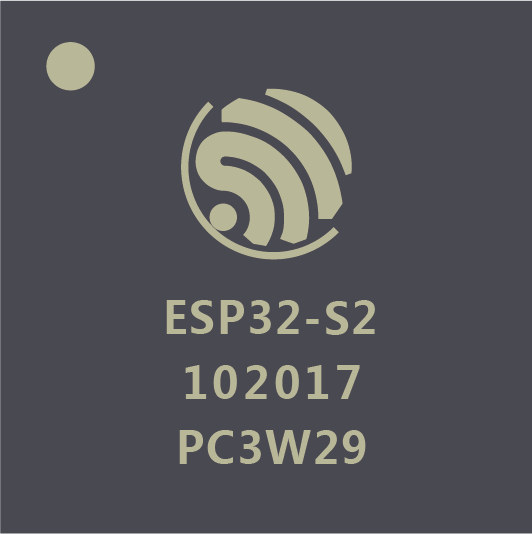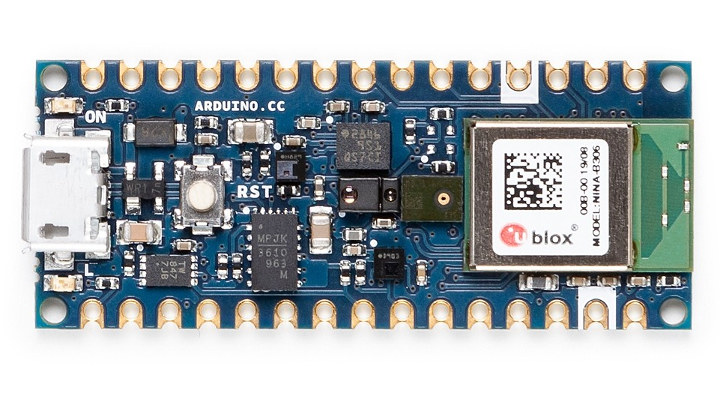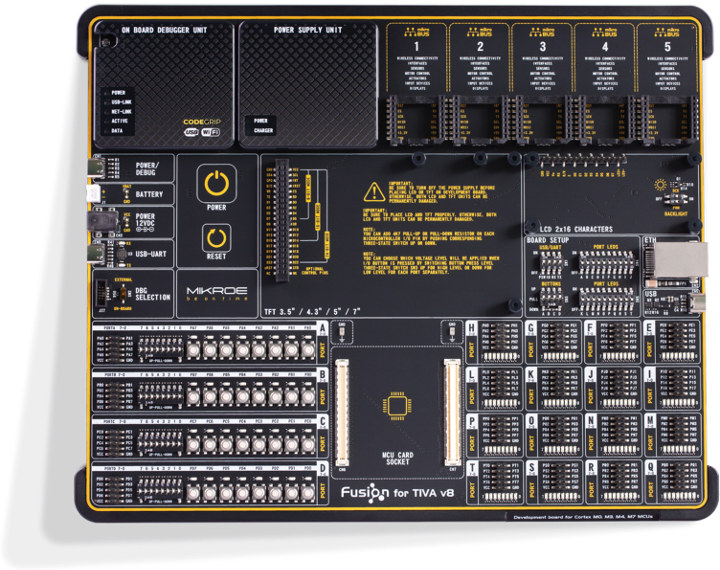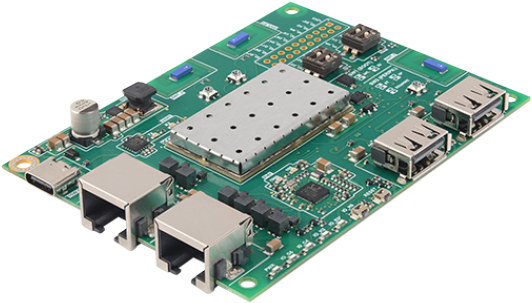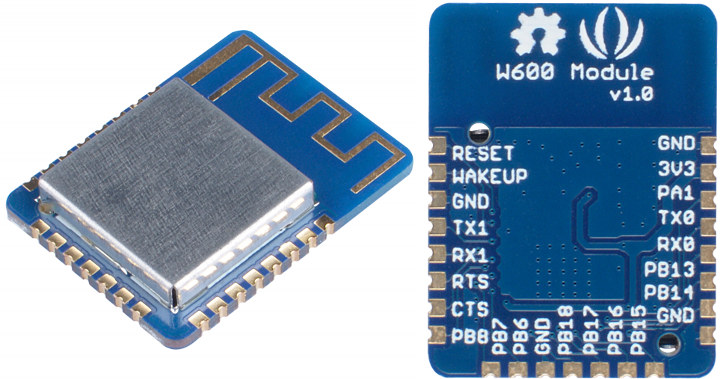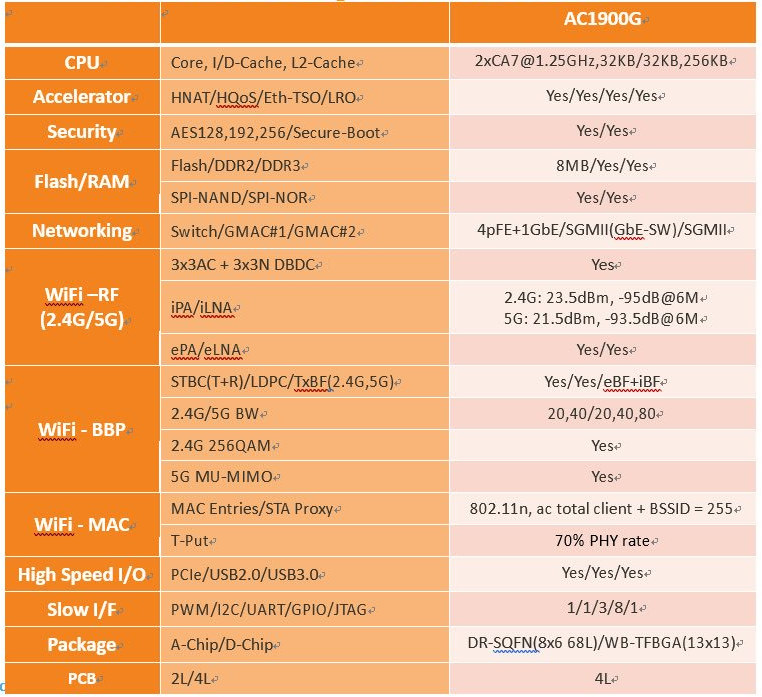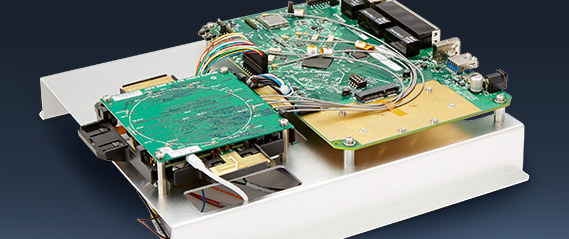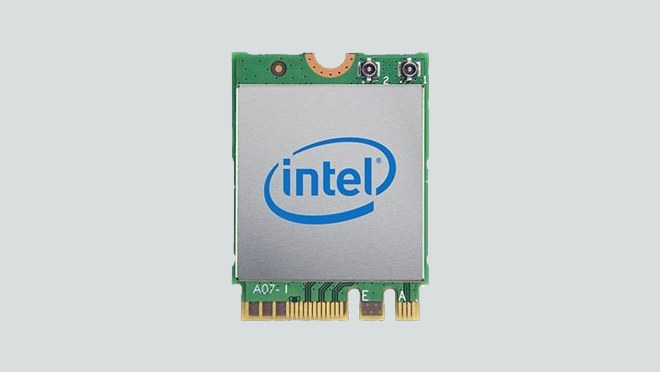Espressif Systems has unveiled a new ESP32 WiFi MCU based on Cadence (previously Tensilica) Xtensa LX7 core instead of the usual Xtensa LX6 core(s). ESP32-S2 is powered by a single Xtensa LX7 core clocked at 240 MHz, supports Wi-Fi HT40 @ 2.4 GHz, and provides up to 43 GPIOs. Espressif ESP32-S2 specifications: CPU – Cadence Xtensa single-core 32-bit LX7 microcontroller @ up to 240 MHz, and ultra-low-power co-processor System Memory – 320 kB SRAM, external SPIRAM support up to 128 MB in total, 16 KB RTC memory Storage – 128 kB ROM, up to 1 GB of external flash support Connectivity Wi-Fi 802.11 b/g/n 1×1 transmit and receive with HT40 support with data rate up to 150 Mbps Support for TCP/IP networking, ESP-MESH networking, TLS 1.0, 1.1 and 1.2 and other networking protocols over Wi-Fi Support Time-of-Flight (TOF) measurements with normal Wi-Fi packets I/O & peripherals 43x programmable GPIOs 14x […]
Arduino Introduces Four New Nano Boards with WiFi, BLE, Sensors, and/or HW Crypto
The Maker Faire 2019 is now taking place in San Mateo, California, United States, and Arduino has made an habit of announcing new products during the events. This year is no different as the company has announced a new Nano Family with four boards: Arduino Nano Every powered by a Microchip ATMega4809 AVR microcontroller Arduino Nano 33 IoT with secure internet connectivity thanks to a U-blox ESP32 WiFi module and ATECC608A HW crypto chip Arduino Nano 33 BLE with Bluetooth connectivity via U-blox NINA B306 module based on Nordic Semi nRF52840 Bluetooth 5.0 chip Arduino Nano 33 BLE Sense with a design similar to Nano 33 BLE but some extra on-board sensors. Arduino Nano Every Specifications: MCU – Microchip ATMega4809 AVR microcontroller @ 20 MHz with 48KB flash, 6KB SRAM, 256 Bytes EEPROM USB to Serial via Microchip ATSAMD11D14A Arm Cortex-M0+ USB MCU 2x 15-pin expansion headers with GPIO, SPI, […]
Fusion for TIVA v8 Development Board Enables Debugging & Programming over WiFi
Texas Instruments TIVA Arm Cortex-M4 MCU family was first introduced in 2013, I tested a TIVA Launchpad the following years, and since microcontrollers have usually a long life span they are still in use today, and should still be available for many years. I’m writing about this TI MCU family today because MikroElektronika has just announced Fusion for TIVA V8 development board for TI TIVA, Stellaris and MSP432 microcontrollers with plenty of I/Os including some MikroBus expansion slots, as well as support for debugging and programming over WiFi in addition to the usual USB-UART interface. Fusion for TIVA v8 board specifications: MCU – Socket for MikroElektronika MCU CARD Display Interfaces 2x 20-pin TFT display connector 1x 16-pin LCD connector for 2×16 characters LCD displays in 4-bit mode, optional PWM backlight driving feature Programming – On-board CODEGRIP programmer/debugger, JTAG connector for connecting an external programmer/debugger Connectivity – Ethernet port, WiFI in […]
Komikan is a Realtek WiFi 802.11ac Wave2 Module & Development Kit
8devices has been developping and selling WiFi modules such as their Rambutan Atheros module, and the now-discontinued Carambola module. The company is now back with Komikan, an 802.11ac Wave 2 + Bluetooth 4.1 module, as well as the corresponding Komikan development kit. Komikan 802.11ac Wave 2 Module Specifications: CPU – Realtek RTL8197FS MIPS 24Kc processor @ 1 GHz System Memory – 128 MB RAM Storage – 32MB flash Connectivity WiFi 4 802.11 b/g/n 2×2 MIMO via RTL8197FS WiFi 5 802.11ac Wave 2 2×2 MIMO via Realtek RTL8822BEH Bluetooth v2.1/3.0/4.1 Max output power – 22 dBm per chain Antenna – GPIO pins for external antenna Expansion via bottom pads – 44x GPIO, 2x USB, 4x UART (one for BT), RGMII, 2x SPI, PWM, MDIO, eMMC, JTAG, 2x I2S, PCM, 2x I2C, P-NAND Power supply – 3.3V, max power consumption 6W Dimensions – 37.5 x 21.3 mm The two integrated radios (2.4 […]
Seeed Studio W600 Certified WiFi Module to Support Arduino, Micropython
Last year, Seeed Studio introduced Air602 WiFi module, a competitor to ESP8266 based on Winner Micro W600 Arm Cortex-M3 microcontroller and selling for $1.90. The module was clearly optimized for cost and size since it offered only a few I/Os, and there was absolutely no mention about FCC or CE certifications. The company has now launched another W600 module, slightly larger to expose more I/Os, and pre-certified to comply with FCC and CE requirements. W600 certified WiFi module is offered standalone, or fitted to “Grove – W600” module for easy connection to Arduino boards. W600 Module Specifications: WiSoC – Winner Micro W600 Arm Cortex-M3 microcontroller with 1MB Flash, RF Transceiver, CMOS PA, BaseBand WiFi Connectivity – 802.11 b/g/n up to 150 Mbps Frequency – 2.4~2.4835 GHz Features – Wi-Fi WMM, WMM-PS, WPA/WPA2, WPS Protocols – TCP, UDP, ICMP, DHCP, DNS, HTTP Access Point and Station modes PCB antenna Expansion – […]
Mediatek MT7629 Dual Core Arm Processor to Power AC1900 Routers
MediaTek is working on a new dual core Cortex A7 processor that supports OpenWrt and targets AC1900 WiFi routers. That’s what I learned from a tweet by WidoraIoT detailing the main features of MediaTek MT7629 SoC as shown in the table below. So basically we have two Arm Cortex-A7 cores clocked @ up to 1.25 GHz, 8MB built-in? flash, HW accelerators and security/crypto engines, multiple Gigabit and Fast Ethernet interfaces, built-in support for 802.11n (WiFi 4) 3×3 MIMO and 802.11ac (WiFi 5) 3×3 MIMO, as well as various interfaces such as PCIe, USB 2.0, USB 3.0, and the usual slower I/Os like I2C, PWM and UART. A web search mostly shows code commits to Linux and U-boot, and we learn a few extra details such as MT7629 shares the same PCIe IP block as MT7622 dual core Cortex-A53 processor. It also reveals a forum post on Widora website with a […]
Qualcomm Mesh Networking DevKit Supports Amazon AVS
The Qualcomm Mesh Networking Development Kit for Amazon AVS enables integration of Amazon Alexa Voice Services into mesh Wi-Fi systems. A somewhat recent blog post on Amazon Developer website explains the devkit is the first ever Amazon-qualified reference design for a mesh WiFi system with Alexa built-in. The reference platform is based on the Qualcomm IPQ4019 SoC, includes a rectangular 4-microphone array, far-field audio processing algorithms for noise suppression, acoustic echo cancellation, wake word engine, and the AVS Device SDK. Qualcomm Mesh Networking DevKit specifications: WiSoC – Qualcomm IPQ4019 quad core Arm Cortex-A7 processor @ 717 MHz with SIMD DSP, WiFi 5; 40 nm process technology System Memory – 1GB DDR3L RAM Storage – eMMC flash and microSD card Display I/F – LCD interface Connectivity WiFi Standards: 802.11ac Wave 2, 802.11ac, 802.11p, 802.11n Bands: 2.4 GHz, 5 GHz Peak speed: 1.733 Gbps Channel Utilization: 20/40/80 MHz, 5/10/20/40 MHz MIMO Configuration: […]
Intel Launches WiFi 6 AX200 M.2 Wireless Card
WiFi 6 (aka 802.11ax) can deliver up to 10 Gbps in theory, and provides better handling of high density scenario in train stations, conferences, etc… We’ve seen it implemented in some routers and smartphones, but most laptops don’t support the new WiFi standard, so in order to solve this little issue, Intel has now launched AX200 M.2 WiFi 6 card in the M.2 2230 and M.2 1216 form-factors. Intel AX200 works in the 2.4GHz band up to 574 Mbps, and in the 5.0 GHz band up to 2.4 Gbps. The “Cyclone Peak” card works with both USB and PCIe signals, support 2×2 MU-MIMO, and also supports Bluetooth 5.0. Drivers are/will be available for Windows 10 64-bit, Google Chrome OS, and Linux via the “IWLWIFI” driver. Pricing for the cards is said to be $10 and $17, but I could not find it listed anywhere just yet. A few more details […]


